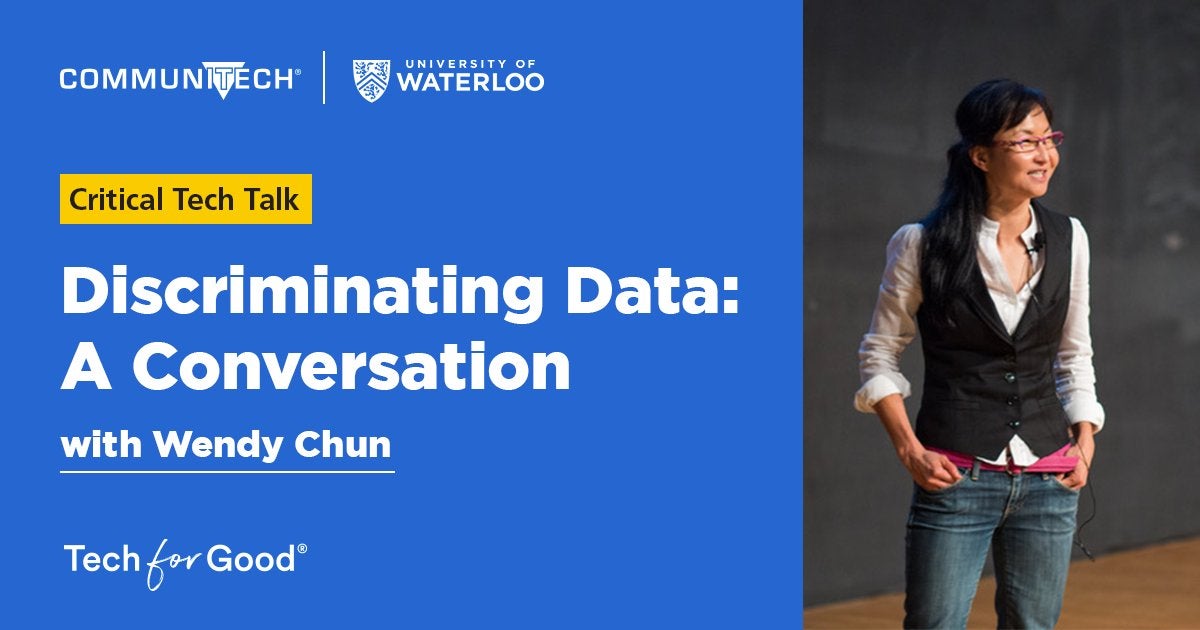
Have you ever observed a divisive, rage-fuelled fight online and wondered about the role technology played in the background?
In her most recent book, Discriminating Data (2021), Wendy Chun reveals how polarization is a goal—not an error—within big data and machine learning. These methods, she argues, encode segregation, eugenics, and identity politics through their default assumptions and conditions. Correlation, which grounds big data's predictive potential, stems from twentieth-century eugenic attempts to “breed” a better future. Recommender systems foster angry clusters of sameness through homophily. Users are “trained” to become authentically predictable via a politics and technology of recognition. Machine learning and data analytics thus seek to disrupt the future by making disruption impossible.
Wendy Hui Kyong Chun is Simon Fraser University's Canada 150 Research Chair in New Media in the School of Communication and Director of the Digital Democracies Institute. She studied both Systems Design Engineering and English Literature at the University of Waterloo, disciplines that combine and mutate in her work on digital media. Her recent books include Discriminating Data: Correlation, Neighborhoods, and the New Politics of Recognition (2021), Updating to Remain the Same: Habitual New Media (2016), and Programmed Visions: Software and Memory (2011).